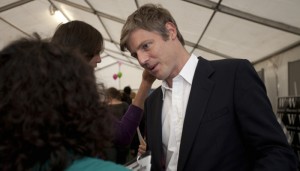Another period of A-level results has passed and thousands of students will be heading to University over the next 4 weeks. But is a degree strictly necessary? For many it isn’t. It wasn’t for me initially, but as my career aspirations altered, a degree became the minimum requirement for my next goal.
Three years ago, I decided to end a successful career in retail and become a student, studying Education. I became poor overnight and left behind a lifestyle of exotic holidays, new cars and weekly shopping trips to Topman. So how can university be financially possible for the majority of young people?
This is how I did it. I applied in 2011, just before the Government planned to increase tuition fees. Although the increase in fees would not have necessarily discouraged me, if I wanted to avoid paying up to nine thousand pounds a year I had to bite the bullet and submit my UCAS application. Knowing my parents would not be able to financially support me, and aware that my maintenance loan would not be enough to live on, I had to work out how to support myself.
Luckily, my local Starbucks was recruiting so I decided to attend the day of open interviews. It went well and I was asked to start the following week. Although, somehow I had convinced people that I was a coffee lover, I wasn’t at the time. A great number of awkward coffee tastings followed, but that is another story. I soon realised that Starbucks was a revolving door for students, with many working weekends and between lectures which enabled us to earn extra cash. Throughout my three years at University, I typically worked between 16 and 25 hours a week. Without being able to work part-time, for me, University just would not have been possible.
For most, student loans are an inevitable part of the University experience, especially now. Only the very fortunate are able to leave University debt free. Many are put off by the huge sums of money they have to borrow, but I considered it to be a risk free investment. Only a small percentage of the loan is taken from your pay-check based on your salary, and repayment starts when you are earning twenty-one thousand pounds or more a year. If it all goes pete-tong and you never quite meet your earning potential, then you never have to pay the loan back.
I expect thousands of students will be in the same boat I was in three years ago. So if you need some extra money to help you through university, why not check out your local Starbucks, or Costa, or anywhere else that accommodates student hours. As well as helping financially, it’s good for your cv, and is fun.
I am now a graduate, with a degree under my belt, and a more than manageable level of debt. I am on the job trail, and who knows, I might get back to that sun-filled, fun-filled lifestyle, or just head towards a mortgage, or even both. Either way, I have had three years of mind stretching education, and have acquired great coffee making skills which keep me going in between interviews. Life is good.









